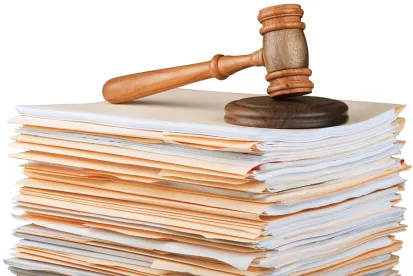The one-year statute of limitations (SOL) for Fair Debt Collection Practices Act (FDCPA) claims begins to run when the alleged violation occurs and not when it is discovered, the U.S. Court of Appeals for the Third Circuit has ruled in a unanimous en banc decision. The Third Circuit’s ruling is contrary to rulings of the Fourth and Ninth Circuits. The circuit split increases the likelihood that the U.S. Supreme Court will agree to hear the case if a petition for certiorari is filed.
In Rotkiske v. Klemm, the defendant debt collector sued the plaintiff in March 2008 for payment of credit card debt and attempted service at an address where the plaintiff no longer lived. After withdrawing the lawsuit because it could not locate the plaintiff, the defendant refiled the lawsuit in January 2009 and attempted service at the same address. Unbeknownst to the plaintiff, someone at that address accepted service on his behalf and the defendant obtained a default judgment.
The plaintiff discovered the judgment when he applied for a mortgage in September 2014 and filed a lawsuit against the defendant in June 2015 for alleged FDCPA violations. The district court, rejecting the plaintiff’s argument that the FDCPA’s SOL incorporates a discovery rule, granted the defendant’s motion to dismiss. Nearly eight months after a panel heard oral argument in the plaintiff’s appeal, the Third Circuit sua sponte ordered a rehearing en banc.
In affirming the district court, the Third Circuit relied primarily on the FDCPA’s text, which provides that an action to enforce any liability created by the FDCPA can be brought in any appropriate federal district court “within one year from the date on which the violation occurs” (emphasis added). The court described the two basic models that legislatures may use in fixing the start of a limitations period. One model uses a “discovery rule,” under which the SOL runs from the date a plaintiff knew or should have known of his or her injury. The other model uses an “occurrence rule,” under which the SOL runs from the date the injury actually occurred. The Third Circuit concluded that when Congress specifies that the limitations period starts on the “date on which the violation occurs,” as it did in the FDCPA, “the occurrence rule plainly applies.”
The Third Circuit rejected the plaintiff’s argument that, because the collection practices prohibited by the FDCPA are inherently fraudulent, deceptive, or self-concealing, application of the discovery rule is necessary to carry out the FDCPA’s remedial purpose. The court observed that not only will many FDCPA violations be apparent to a consumer the moment they occur, equitable tolling remains available to avoid unfairness where an FDCPA claim does involve fraudulent, misleading, or self-concealing conduct.
In explaining its reason for declining to join the Fourth and Ninth Circuits “in holding that the statute means something other than what it plainly says,” the Third Circuit indicated that neither court had analyzed the FDCPA’s “violation occurs” language in reaching its decision.
The plaintiff also attempted to rely on a 1994 Third Circuit decision in which the court, in dictum, applied a discovery rule to Title VII claims even though the statutory language required charges to be filed within 180 days “after the alleged unlawful employment practice occurred.” The court indicated that the U.S. Supreme Court’s 2001 decision in TRW Inc. v. Andrews “counsels in favor of reconsidering our earlier practice of presuming an implied discovery rule.”






 />i
/>i

